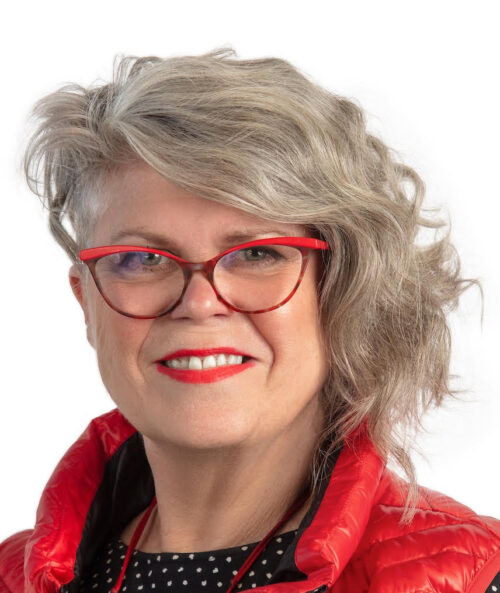Meet VADANZ President Dr Sally Cockburn

Q&A with new VADANZ Pesident Dr Sally Cockburn
Tell us about your background
I’m a medical practitioner of more than 40 years. I grew up in Melbourne, in a family that was social justice-oriented.
My mother was a nurse and my father was an optometrist. They instilled in me early the notion of continuing education; and my family goes many generations back being involved in public service.
I’m passionate about practitioner, patient and community issues which has led me to be active in health policy and education at many levels.
I’ve tackled several sensitive issues including sex, abortion and mental health, as the Chair of Family Planning Victoria and on the boards of the Victorian Government’s Mental Health Reform Council and Sexual Health Task Force. I wanted to better understand the interface between health and law so in my 50s I completed a Masters of Health and Medical Law.
I’ve always wanted to talk about issues that no one wanted to talk about. So, end-of-life care was a natural progression for me, as there is still a stigma. I’ve just finished six years on Victoria’s inaugural Voluntary Assisted Dying Review Board, which has helped me gain a good understanding of the program, and the needs of both practitioners and patients.
What interests you about VAD?
For me, voluntary assisted dying is about patient autonomy with appropriate safeguards, and that’s something I’ve always strongly advocated for. I was an active supporter of Victoria’s VAD bill and was in Parliament when it passed in 2017.
With the passage of the other laws, Victorian laws are now seen as the most stringent. But as the first state in Australia to get that law through, there had to be compromise.
What are the top priorities for improving VAD practice?
I believe there must be safeguards but we need to be careful they’re not barriers to access. At the moment we have laws across the states and the ACT, with some significant differences. Ideally we would like to see them harmonised as much as possible.
In Vic, SA and NZ, for instance, there is the so-called ‘gag clause’ that needs to be addressed, where health practitioners are prohibited from raising VAD with patients, even in the context of a person’s care and treatment choices. It just strikes me as so different from any other aspect of medicine.
Doctors need to be able to talk about it because, sadly, there are patients who don’t even know VAD is a legal option.
While the law rightly talks about protecting an individual from coercion, I’m also concerned about people who might get coerced out of VAD.
If I could put one badge on my coat, I’d like it to be that we managed to solve the telehealth issue. This issue is top of mind for me. We’ve been caught up in the Commonwealth Criminal Code and that needs to be changed so VAD is exempt. For Queensland and WA, in particular, with their incredibly large geographic areas, it is unfair to expect a terminally ill person to get in a vehicle and drive hundreds of kilometres to see a doctor – or for a doctor to have to travel hundreds, sometimes thousands, of kilometre round trips to see patients. Obviously there needs to be a face-to-face component but we need to consider that telehealth is a part of normal healthcare these days.
Another thing we need to tackle is open disclosure of aged care facilities and hospitals that are institutional objectors, so patients can make informed decisions.
I’d also like to see more education of the public and doctors about what’s involved in the VAD process, and understanding what documents they need to supply in terms of citizenship, name changes and so on, to avoid unnecessary delays. It’s also important that patients know to allow enough time for their application, and that if they are approved there is no obligation to take the substance.
One of the problems in most jurisdictions is the supply of doctors in VAD. It is improving, but we need more doctors to be involved. Part of that is addressing the stigma around VAD, and that it is a valid option for eligible people.
I’d like to see more GP’s undertake VAD training, even if they are not planning to practise it; just so they can be informed for their patients. You never know what the next patient is going to ask you. I’d like to see Continuing Professional Development (CPD) points attached to the VAD training program and a closer relationship with the colleges.
I would also like to see VAD awareness taught in medical schools. We just need to destigmatise VAD as part of healthcare.
What else are you hoping to achieve in your time as President?
I’d like to tackle remuneration for VAD doctors, and getting it comprehensively covered by the MBS. We need to appreciate that while it’s a wonderful thing for doctors to do the work pro bono, they shouldn’t have to. If VAD is a legal healthcare option it should be remunerated like any other and we should have an item number.
Obviously, I’d like to see the VADANZ membership grow.
I see our role at VADANZ as supporting doctors to get better outcomes for patients, and education is key. I’d like VADANZ to be very involved in the communities of practice and with care navigator services.
As the new President, I’d also like to hear from the membership about what they want us to concentrate on.
VAD can be an isolating practice and we need support from our colleagues. That’s why the VAD conference is so important, where we will all get a chance to meet and greet like-minded professionals. I’m looking forward to meeting many of our members there.